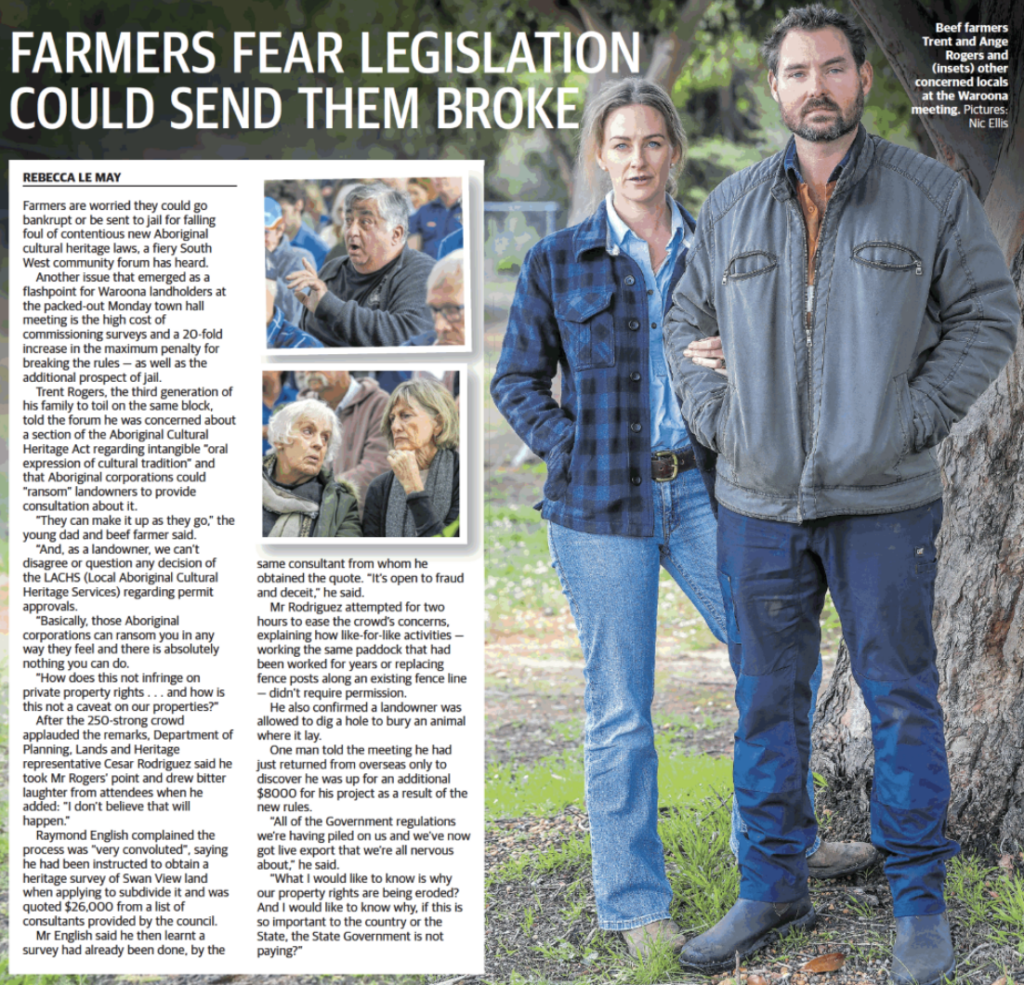

Article by Rebecca Le May courtesy of the West Australian.
Farmers are worried they could go bankrupt or be sent to jail for falling foul of contentious new Aboriginal cultural heritage laws, a fiery South West community forum has heard.
Another issue that emerged as a flashpoint for Waroona landholders at the packed-out Monday town hall meeting is the high cost of commissioning surveys and a 20-fold increase in the maximum penalty for breaking the rules — as well as the additional prospect of jail.
Trent Rogers, the third generation of his family to toil on the same block, told the forum he was concerned about a section of the Aboriginal Cultural Heritage Act regarding intangible “oral expression of cultural tradition” and that Aboriginal corporations could “ransom” landowners to provide consultation about it.
“They can make it up as they go,” the young dad and beef farmer said.
“And, as a landowner, we can’t disagree or question any decision of the LACHS (Local Aboriginal Cultural Heritage Services) regarding permit approvals.
“Basically, those Aboriginal corporations can ransom you in any way they feel and there is absolutely nothing you can do.
“How does this not infringe on private property rights . . . and how is this not a caveat on our properties?”
After the 250-strong crowd applauded the remarks, Department of Planning, Lands and Heritage representative Cesar Rodriguez said he took Mr Rogers’ point and drew bitter laughter from attendees when he added: “I don’t believe that will happen.”
Raymond English complained the process was “very convoluted”, saying he had been instructed to obtain a heritage survey of Swan View land when applying to subdivide it and was quoted $26,000 from a list of consultants provided by the council.
Mr English said he then learnt a survey had already been done, by the same consultant from whom he obtained the quote. “It’s open to fraud and deceit,” he said.
Mr Rodriguez attempted for two hours to ease the crowd’s concerns, explaining how like-for-like activities — working the same paddock that had been worked for years or replacing fence posts along an existing fence line — didn’t require permission.
He also confirmed a landowner was allowed to dig a hole to bury an animal where it lay.
One man told the meeting he had just returned from overseas only to discover he was up for an additional $8000 for his project as a result of the new rules.
“All of the Government regulations we’re having piled on us and we’ve now got live export that we’re all nervous about,” he said.
“What I would like to know is why our property rights are being eroded? And I would like to know why, if this is so important to the country or the State, the State Government is not paying.















